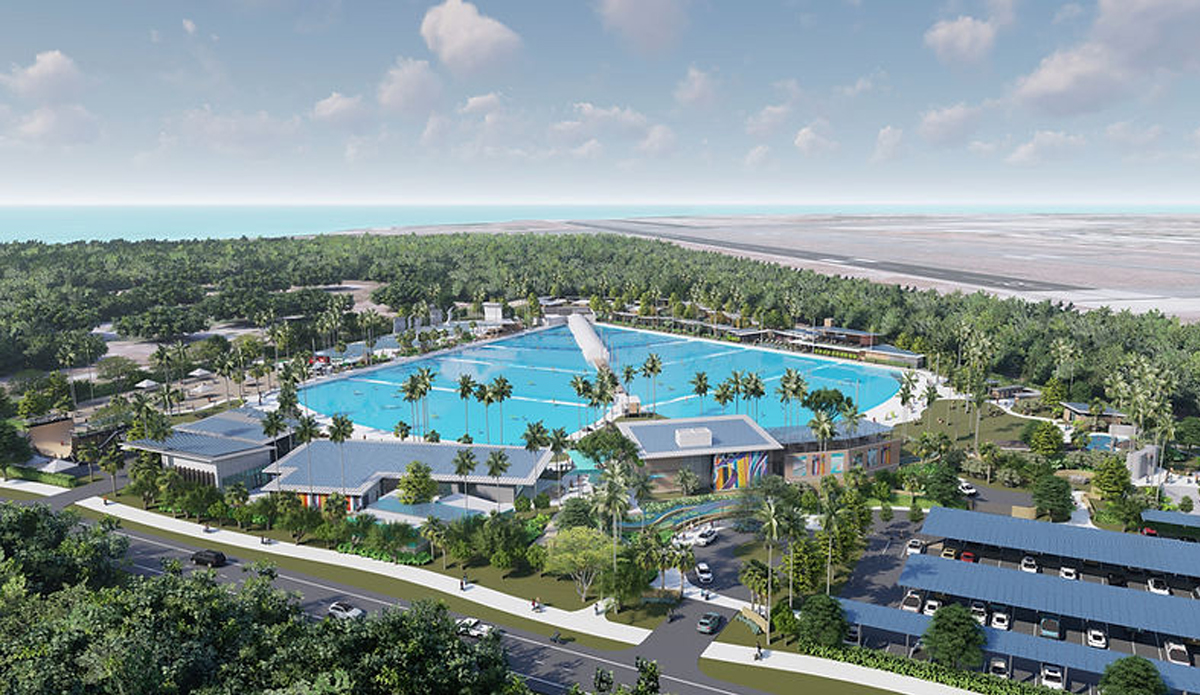
A rendering of the proposed Brian Keaulana backed wave pool. Photo: Honokea West
A proposed Oahu wave pool backed by legendary waterman Brian Keaulana hit a legal snag this week. On Tuesday, Hawaii Environmental Court Judge Shirley Kawamura ordered a new review of the impact the pool would have on water supply and anticipated growth in the area. The decision was prompted by a lawsuit from local Native Hawai’ian and environmental activists who have opposed the pool since its announcement.
The proposed project is Honokea Surf Village. The 19-acre development is planned for west Oahu, and would feature a wave pool boasting a seven-million gallon water capacity. In January of 2023, the Hawaii Community Development Authority approved the project, finding that it would have no environmental impacts. That April, Honokea filed its first permit, which was approved on May 3.
However, a group of Native Hawai’ian and environmental activists quickly opposed the HCDA’s assessment. The group, Na Kiai o Wai Ha, filed a lawsuit in state circuit court with the goal of barring the project from going forward. The suit claimed that the negative impact of Honokea Surf Village would be twofold: that the pool itself would damage nearby seaweed through the use of injection wells and that the development at large could possibly disturb ancient burial grounds.
With this new ruling, it appears the efforts have been successful, at least for now. As the Associated Press reports, Kawamura said in her ruling that there was “insufficient evidence for the HCDA to determine whether there is a likelihood of irrevocable commitment of natural resources and whether secondary and cumulative impacts of water use, injection, land use changes, and wildlife mitigation would likely lead to a significant impact, thereby favoring an injunction.”
While the judge sided with the activists regarding the environmental impact, the court determined that the HCDA did make a sufficient assessment of potential impact on historic preservation and burials.
In response to the claims regarding the environmental impact, developers say the project would draw from a private water company, not Oahu’s water utility, according to the AP. However, the judge noted that both those sources draw from the same underlying aquifer, thus requiring additional analysis to understand the potential impact of the facility.
Healani Sonoda-Pale, one of the plaintiffs, called the decision “pono,” a Hawai’ian word for righteous. She added, “Building a wave pool is not a cultural practice. The threat of a wave pool … is so immense in terms of how many people it could affect.”

